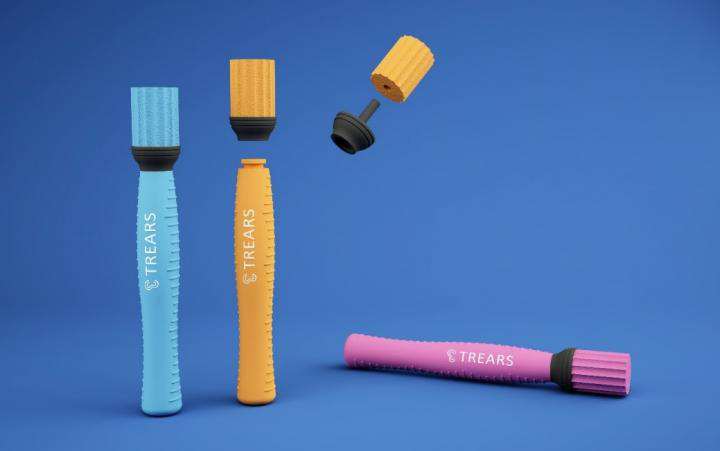
Researchers at University College London and King’s College London have developed a device that allows for easy earwax sampling, with the goal that the wax could be a convenient and reliable way to measure cortisol levels. The device can be used by a patient at home to obtain a sample of earwax and is less invasive and unpleasant than existing methods, such as syringing.
Cortisol levels change in patients with conditions such as depression, Addison’s disease, and Cushing syndrome, and so measuring someone’s cortisol levels could be useful in diagnosing and monitoring these diseases. However, cortisol levels are difficult to reliably measure in the blood as they can fluctuate a great deal. Hair can also reflect cortisol levels, but not everyone has enough to provide a sample, and it can also be prone to cortisol fluctuations along with being time-consuming and expensive to analyze.
“Cortisol sampling is notoriously difficult, as levels of the hormone can fluctuate, so a sample might not be an accurate reflection of a person’s chronic cortisol levels. Moreover, sampling methods themselves can induce stress and influence the results,” explained Andres Herane-Vives, a researcher involved in the study. Another option is earwax, which sounds unappealing, but may provide a stable source of cortisol. “Cortisol levels in earwax appear to be more stable, and with our new device, it’s easy to take a sample and get it tested quickly, cheaply and effectively,” added Andres Herane-Vives.
Current standard techniques to obtain earwax samples include syringing, which is messy, can be uncomfortable, and typically occurs in a doctor’s clinic. This new approach is intended to be easy and rapid, and a user could conceivably perform the procedure themselves in their own home.
The new device resembles a colorful cotton swab, but unlike a conventional swab its design does not permit a user to advance it too far into the ear canal, thereby preventing inadvertent damage to the ear. The tip of the device is covered in a cellulose sponge soaked in a mineral oil solution containing magnesium chloride, which is intended to maximize sample uptake.
So far, the researchers have tested the device in a pilot study with human volunteers and found that it was simple and quick to use, and the resulting earwax samples provided a robust and reliable source of cortisol. “After this successful pilot study, if our device holds up to further scrutiny in larger trials, we hope to transform diagnostics and care for millions of people with depression or cortisol-related conditions such as Addison’s disease and Cushing syndrome, and potentially numerous other conditions,” said Herane-Vives.
Study in Heliyon: Measuring Earwax Cortisol Concentration using a non-stressful sampling method
